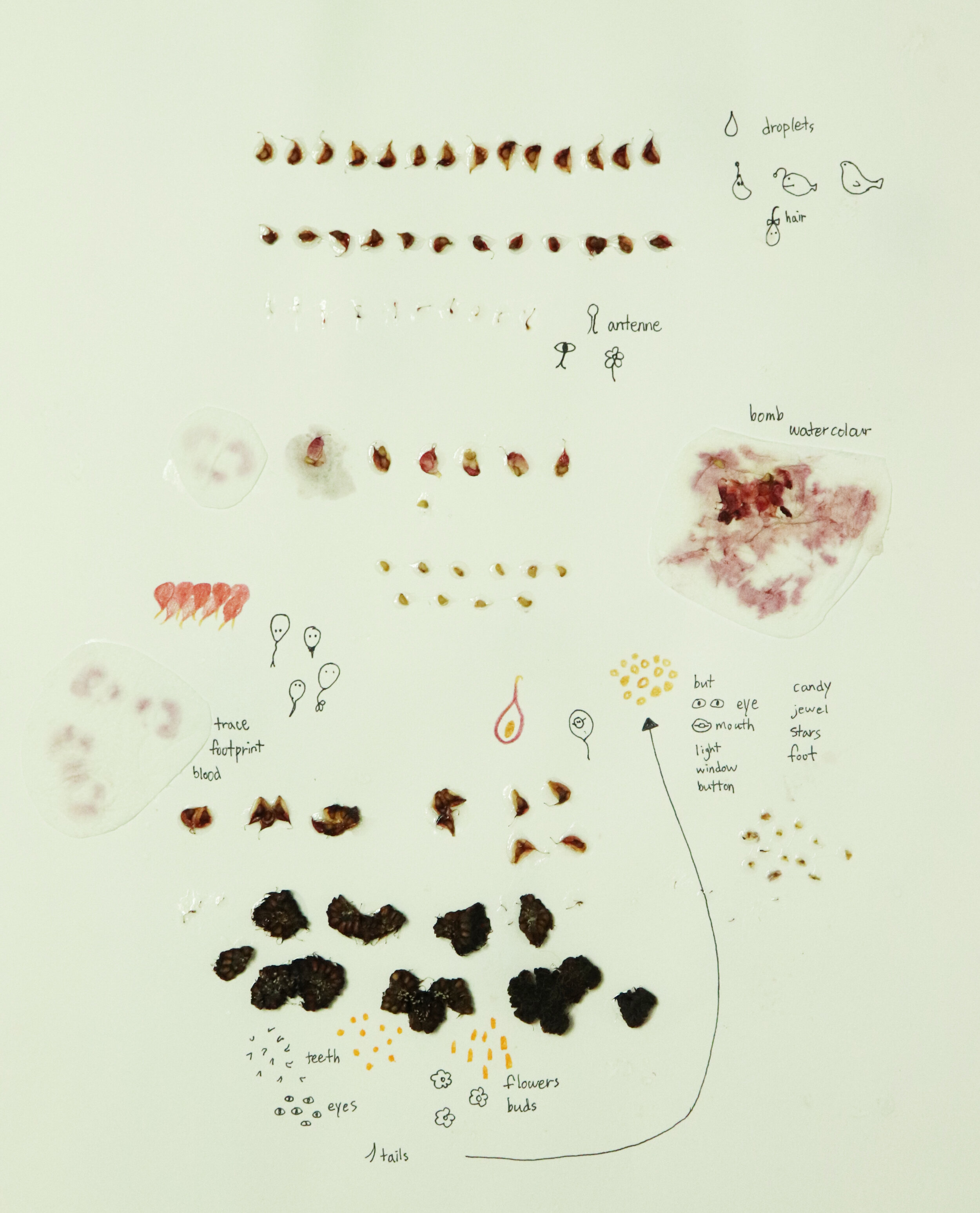
We All Were Creative
( Interactive Installation & Media Art )
- Type of Project: self-initiated interactive installation
- Challenge: to create a new experience for audiences inspiring creativity
- Role: from the stage of researching to post-production
- Inspiration: infancy, fruit, Japanese Shinto religion
We All Were Creative is an interactive installation in which people are invited to lie down in a cot. They can touch each fruit toy hanging on the mobile in order to trigger different videos on the ceiling. Each video represents the creative imagination of a baby.
Inspired by childhood memories of playing with stuffed toys as if they have lives of their own, I was reminded of the Japanese religion Shinto in which it is dictated that everything in the world has spirit. Subsequently, I created some fruit creatures. Fruit is not only very necessary to our lives but also has been a great inspiration to me as a visual artist.
Used Tools: Unity, Processing, Arduino, Velostat, After Effects, Illustrator, IbisPaintX, Distance Sensor, Beam Projector
Plans to make the exhibition more memorable




Due to Covid19, spaces and supplies to actualize my installation were highly limited.
I planned to incorporate the scent of baby powder in the hopes of stimulating the human olfactory senses. I further planned to promote myself by making my name card in a figure of a pacifier that is specially designed as a candy. In this way, my audiences would be able to experience their ‘baby time’ more immersively and would furthermore be promoting my name and my work with every photo taken with the pacifiers.
Five Scenes
Space Design
I also designed the background wallpaper and the blanket myself. These patterns were designed using dismantled parts of fruits; specifically figs and papayas.




Idea Notes





Idea Sketches














